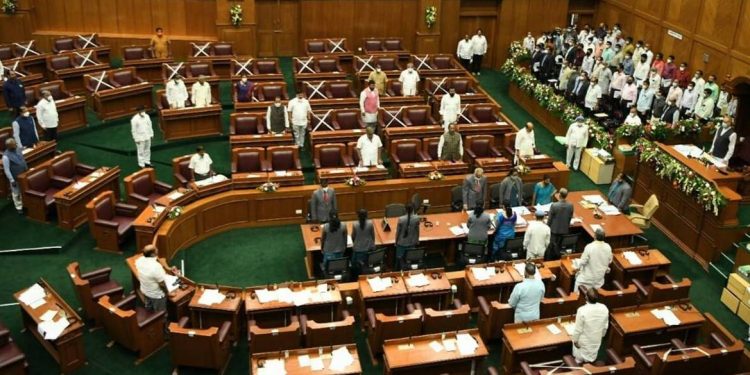The attack on four Christians by members of a right wing group in Karnataka December 12 took place a day before the Karnataka Assembly begins the winter session when an anti-conversion Bill is likely to be tabled. The supposed ‘crime’ of the four was to hold discussions on a drive to distribute religious books. According to police, the victims had come to a rented accommodation in Srinivaspura in Kolar district. Their attackers had first questioned them, snatched their books and set them on fire and then attacked them. This is the latest in a series of attacks on Christians in the state.
After the incident, Karnataka Chief Minister Basavaraj Bommai said, “A majority of people want to ban religious conversion. There is no problem if people follow the customs of their respective religions. However, there should be no scope for misusing someone’s poverty to lure them into changing their faith.” What Bommai has said regarding luring of the economically weaker sections of society to change faiths is not completely off-mark. Similar incidents of conversion have been observed in Orissa over a long period of time. It could be due to this reason that Orissa was one of the early states to enact an anti-conversion law.
However, since the Karnataka government announced it would bring the anti-conversion legislation in this winter session of the Assembly, attacks on Christians are on the rise. The day before the attack on the four Christians, a man armed with a machete in Belagavi, where the Assembly session is held, supposedly barged into a church and chased the priest in charge. The police registered a case and provided security to the church. The attacker is still at large.
Karnataka has seen an increase in attacks against Christians in October and November after the state government proposed the anti-conversion law in the state. A fact-finding report by several civil society organisations reveals 27 such attacks took place during the first 272 days of this year, while five incidents took place between October and mid-November alone. Uttar Pradesh reported the most such cases (66), followed by Chhattisgarh (47), and Karnataka (32).
The disclosures made in the report by United Christian Forum (UCF), Association for Protection of Civil Rights (APCR), and United Against Hate, paint a grim picture of the communal discord and disaffection that have been plaguing India lately. While Karnataka may rank third among states with the most number of attacks on the community and their places of worship, the reasons for such acts need to be scrutinised thoroughly. Calls registered in the UCF helpline recorded 305 cases across the country in the year till September 2021. The desperate calls were for mob attacks numbering 288, damage to 28 places of worship and injuries during attacks to 1,331 women, 588 tribals, and 513 Dalits. The role of the police, according to the report, casts doubts about the neutrality of the force.
It is well known that social and economic disparities are exploited to a great extent in process of conversion. Wherever there is mass conversion, a common factor has been economic stress experienced by the converted. Although these are truths that cannot be ignored, yet violence can never be condoned. The best way out is not by enacting laws but by making efforts to reach government’s welfare measures to those that are genuinely needy. Not everyone wishes to change religions.
Few are by choice. Most are by need.






































